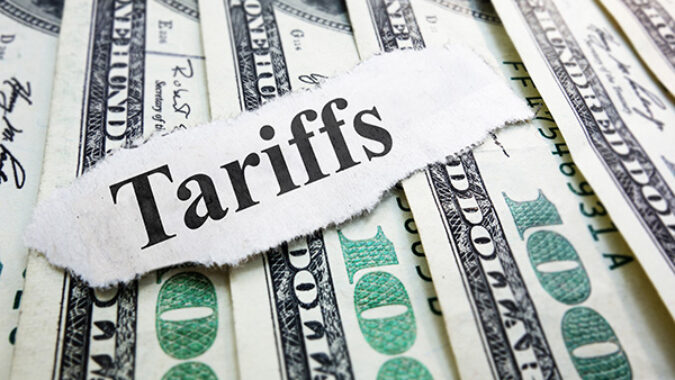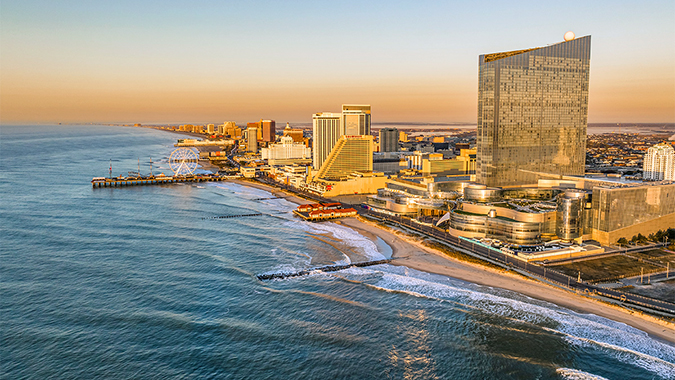Good afternoon! My name is Christopher Emigholz, and I am the Chief Government Affairs Officer for the New Jersey Business & Industry Association (NJBIA). As the Garden State’s largest business association and on behalf of the entire New Jersey business community, NJBIA thanks Chairman Atkins for granting us this important opportunity to speak about how tariffs can potentially impact our economy.
New Jersey manufacturers are near and dear to NJBIA’s heart and manufacturing is in our DNA, as NJBIA started out as the New Jersey Manufacturers Association (NJM) over 114 years ago. So, one may think that NJBIA would support tariffs designed to boost domestic manufacturing, but not so fast. Tariff policy can be complicated and there are both negative and positive outcomes that may occur for New Jersey businesses that policymakers should be aware of and plan for.
Reasons for Concern Regarding Tariffs:
- Free Trade is Good for Our New Jersey Economy & Tariffs Disrupt Free Trade – NJBIA and our national partner on manufacturing issues, the National Association of Manufacturers (NAM), supports free trade as good for the economy. Imports are a critical part of our supply chain, and exports are an important money-maker for New Jersey businesses. New Jersey generated $43.3 billion in exports in 2023 with approximately 20,000 New Jersey companies participating in that. Of those exporters, 91% were small or mid-sized manufacturers, and trade supports over 20% of all New Jersey jobs. Our top New Jersey export destinations were Canada, Mexico, Japan, China, and the United Kingdom with Canada being the biggest partner accounting for about 20% of all exports. Exports are even more significant to the New Jersey economy than the average state, and our exports could be threatened by imposing tariffs on imports because of retaliatory tariffs. If Canada were to impose tariffs on our goods exported there, that could reduce some of the impressive economic impact of international trade there. Exporters and importers want an open, fair, and predictable global trade environment, and tariffs disrupt that to the likely harm of our economy.
- Tariffs Can Cause Inflation, Both for All Consumers & Within Manufacturers’ Supply Chains – NJBIA’s 66th Annual Business Outlook Survey was recently released, and not surprisingly after a year of concerns regarding inflation, NJBIA members cited four business costs as their top concerns for our next governor clearly ahead of other worries: 1) property taxes, 2) health insurance costs, 3) corporate business taxes and 4) business insurance. This shows that costs of all kinds are a key concern for New Jersey businesses, so anything such as tariffs that could increase costs or cause inflation is a problem. Broad tariffs will increase costs across the board and will likely result in further consumer inflation for everyone in the economy. Tariffs within a manufacturers’ supply chain will make manufacturers have to increase the price of their products, making them less competitive with foreign manufacturers or anyone with a supply chain not disrupted by tariffs.
Potential Reasons to Support Tariffs:
- Promote Domestic Manufacturing – If tariffs are implemented with a more surgical approach focusing only on products easily found both domestically and in other nations, it could promote those domestic products over their foreign competition. That is why our nation needs a Miscellaneous Tariff Bill (MTB) on the federal level to reduce or suspend tariffs for particular products that cannot be made anywhere except for a foreign nation. There currently is no MTB as it expired back in 2020, but to help tariffs be as supportive for manufacturers as possible, our nation needs one. Passing the MTB through 2026 and beyond will boost U.S. competitiveness.
- Bargaining Leverage for Better Trade Agreements – Tariffs could be nothing more than leverage to get foreign nations to the bargaining table to develop more fair trade agreements. Manufacturers want an open, fair, and predictable global trading environment, and more trade agreements could get us to that.
- Pushing Bad Actors to Be More Fair, Open and Predictable – Unfortunately, some nations do not behave in the same fair free trade practices as others, and tariffs could be a means to punish and possibly correct those bad actors such as China. This could also apply to the flow of illegal products into this nation, and tariffs could be a tool to address that.
What Can States Do to Prepare for Potential Tariffs:
- Assess Exposure to Critical Tariff-Impacted Imports in New Jersey – New Jersey state government agencies could plan for what may happen if tariffs are imposed on Canada, Mexico, and China, as President-elect Trump has indicated. The state could help find domestic sources of goods that are critical to supply chains or other countries not currently targeted in tariff discussions that supply these goods. The state could also try to plan for whether other competing exporters will lower their prices to gain market share when others may increase prices, or if competitors will have to increase prices to maintain or increase profit.
- Direct Support of Negatively Impacted Manufacturers – The state could try, based on the above planning, to create a grant or tax incentive program to support manufacturers hardest hit by potential tariffs on products that cannot be found in our nation.
- Education & Resources for New Jersey Manufacturers – There are many existing programs, a veritable alphabet soup of federal and state programs, to help businesses export their products to other counties including NJBAC, SBA, ITA, NJSBDC, NJSTEP and Choose NJ. In part of the planning, the state can assess if businesses are aware of these resources and how we can better get them onto businesses’ radar.
- Support Onshoring of Certain Products in New Jersey – The state can pursue workforce development, infrastructure investments, tax incentives and other policies to support the return of certain manufacturing that is critical to New Jersey supply chains but currently in other nations.
- Encourage New Jersey Congressional Delegation to Support Federal Miscellaneous Tariff Bill (MTB) – To help ensure that tariffs are more surgical and not too broad, state government could reach out to our federal elected officials to push them to support the renewal of the federal MTB.
- Pro-Growth Tax Policies – An already high-cost state with higher-cost products may be more sensitive to possible impacts from inflation caused by tariffs. Anything we can do to control costs in New Jersey may make our businesses less sensitive to the negative impacts of tariffs. Pursuing pro-growth tax policies such as not having the highest CBT rate in the nation or exploring how we make manufacturing taxes more competitive, such as more advantageous R&D tax incentives, and greater accelerated depreciation and interest deductibility to support capital investments.
Thank you for considering NJBIA’s perspective on tariffs, and we hope to continue the dialogue with this committee and the entire legislature on how we can help our New Jersey manufacturers and all businesses. Please email me at cemigholz@njbia.org to further discuss any questions or concerns about tariffs, other federal changes that may impact New Jersey business, and any business issue.




